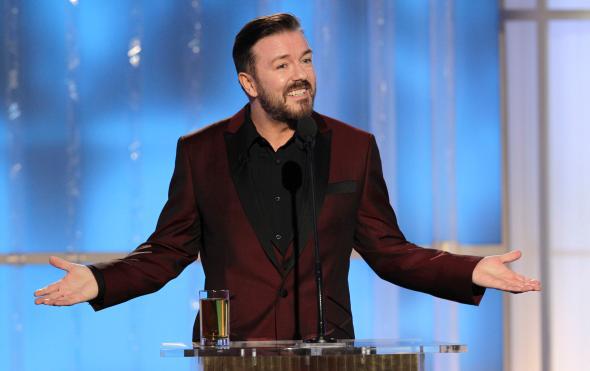If you don’t like this post, then just remove Slate from your favorites.
That’s dumb, you say? Sure, maybe this piece is crap, but you still enjoy Matt Yglesias and devour every Prudie question. There’s no need to entirely block Slate on your browser, you say. Yet this kind of take-it-or-leave-it declaration has become a common refrain on Twitter.
It seems that every few days, I see a snarky tweet from a high-profile tweeter saying something along the lines of “If you don’t like my tweets, just unfollow.” Here are a couple from just the last few days:
I find these scolding tweets incredibly obnoxious. While the chiding messages were almost certainly provoked by rude and inflammatory tweets from followers, these finger-wagging responses paint the tweeter as an arrogant know-it-all unwilling to take any criticism.
A search for “unfollow button” yields almost 100,000 results in just the last 30 days, most of which are of the scolding variety.
Comedian Ricky Gervais, who often receives complaints about his frequently expressed dogmatic views on atheism, has been vocal about this issue.
This snarky tweet is a highly problematic comparison, though. When disgruntled followers tweet at someone, it’s almost always to criticize only one or a small handful of tweets. I doubt Gervais receives many complaints about the entirety of his timeline, as implied by his false equivalence.
What tweets like this are implicitly saying is that it’s impossible for someone to dislike certain parts of something while liking others. But who truly enjoys 100 percent of, well, anything? One mustn’t end a friendship just because they despise hearing someone talk about relationships, stop being a basketball fan simply because they don’t like flopping, or cancel Showtime just because they can’t stand the Dana Brody scenes in Homeland. However, what it’s also saying is that no mere plebian dare has the right criticize one’s tweets—especially one bestowed with so many followers.
The impetus for this kind of thinking originates from an unfortunate axiom that has spread through modern culture: “Haters gonna hate,” which effectively says that anyone who criticizes you is merely a “hater” whose sole motive is to tear you down, and that you should always just ignore them. Because unsolicited criticism is often frowned upon—both in real life and in the twitterverse—it’s considered a major faux pas to politely tell, say, a film critic that her smug political tweets are somewhat off-putting or a sports reporter that his live-tweeting every pitch of that game really clogged your timeline. These aren’t instances of malicious “hating.” They’re merely honest critiques of someone’s work in the hopes that they can better satisfy their followers.
While there are countless irksome Twitter behaviors—re-tweeting compliments, tweeting about how close you are to arbitrary follower plateaus, or most infamously, over-sharing news about your kids—the practice that provokes the most complaints is surely tweeting opinions about touchy subjects like politics or religion, especially if your account specializes in a field unrelated to those subjects. This isn’t to say that a comedian should never be allowed to tweet about abortion, but he or she should be aware of why their followers clicked “follow” in the first place and understand that any out-of-the-blue opinions—especially snarky or condescending ones—on highly divisive topics can rub many the wrong way. (This is something that should be obvious in any form of communication.)
Deadspin has a running series called “Who is Being Told to Stick to Sports Today?” in which they ridicule this practice. But while Deadspin mocks all of the critics, it’s easy to see why a few of the offending tweets could off-putting to some, and it’s not the worst thing in the world if the authors are simply made aware of that fact.
Granted, I’m likely giving these critics far too much benefit of the doubt. Undoubtedly, the majority of Gervais’, Thorn’s, and Malina’s critics are irrational, brusque, and actually should be disregarded. But to put a blanket statement on ignoring all criticism whatsoever seems like an emperor without clothes. Moreover, does anyone really need to be reminded that “unfollowing” is an option? The “Just unfollow me” tweet may be cathartic, but it certainly isn’t likely to detract any critics.
Just like it should go unsaid that you don’t have to follow someone’s tweets, it should be equally evident that you don’t have to follow one’s advice. You don’t even have to click any buttons.
